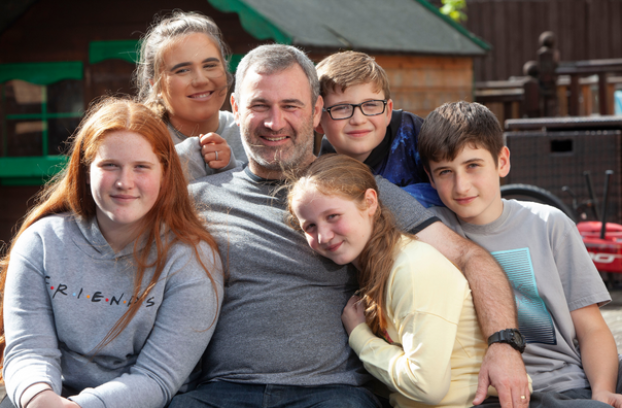Tell your family
If something were to happen to you unexpectedly, would those closest to you know what your latest decision was about organ and tissue donation?
Why it’s important to share your decision
Whatever you decide, it’s important to make sure your donation decision is known to your family and friends.
If you die in the rare circumstances where organ and tissue donation may be a possibility, the doctors and nurses caring for you will discuss donation with your family as part of the end-of-life care discussions.
The specialist nurses will look at the NHS Organ Donor Register to see if you had recorded a donation decision. They will then share this information with your family and friends and will check with them if this was your latest view. This is to ensure donation does not proceed if you would not have wanted it to.
This is why recording and sharing your donation decision and your latest views is important, as this will make it easier for your family and friends to help ensure that your decision is honoured. They can also make sure any particular needs you have in line with your faith or beliefs are taken into consideration.
Learn more about the role of the family in the organ and tissue donation process and your choices on the NHS Organ Donor Register.
Telling Your Family
Julie Booth, Specialist Nurse for Organ Donation
One of the main reasons people give for not discussing donation is that it just never comes up in conversation. Other people say they just haven’t got around to talking about it yet and some people feel reluctant to talk about what happens after their death.
It doesn't matter how you begin to talk about organ and tissue donation with your family and loved ones. It's just really important that you do and share your views.
You can use everyday situations to start a discussion about important life issues including decisions about organ and tissue donation. These might include:
- During a meal with your family
- Getting life insurance
- Leaving home for the first time
- Celebrating a family anniversary or other special occasion
- Getting a check-up by your GP
- Hearing about someone who has become a donor, needs a transplant or has just had a transplant
These events can provide a good opportunity to continue to repeat your decision and have further conversations to ensure they are remembered.

Make sure you and your family know the facts
To help you make the right donation decision, you should read the facts. Your family and friends might also need time to discover the facts to help them make their own decision.
Pictured: Kidney recipient Malcolm Armstrong and family. Read his story here.

Record your donation decision
It only takes a few minutes to record your decision. Learn more about the NHS Organ Donor Register and how you can record your decision.
Pictured: Heart recipient Morgan McComb. Read her story here.